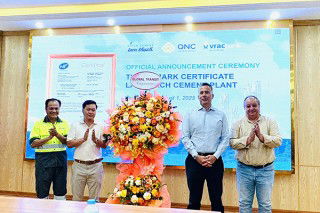Freight rates in the dry bulk sector are rising on the back of a commodity boom. By the end of November 2017, the Baltic Dry Index (BDI) had improved by 45 per cent so far that year, coming in at over 1470 points in the closing week of the month. According to brokers, the late rise in dry bulk freight rates has been driven by renewed demand for coal in China and India. Some of this trend may be due to the Indian government’s potential extension of its petcoke ban forcing the country’s cement producers to shift to coal.
Some brokers are predicting a surprise spike in dry bulk freight rates in the 1Q18, driven by a growing world economy, exports flowing out of China via its Silk Route, and China’s importing of raw materials, the latter of which is expected to contribute to solid seaborne trade growth over the next few years.
Meanwhile, the Indonesian government has announced plans to construct a new sea port in West Java. The new facility, to be known as the Port of Patimban, will be located 120km east of central Jakarta and hopes to ease the pressure off the Port of Tanjung Priok, which is unable to expand due to its proximity to Jakarta. It also intends to become a manufacturing hub for the region.
The new port, which has been funded to the tune of US$1bn by the Japanese government, is to be constructed in stages with building work beginning in January 2018. The first stage is due for completion in 2019 with the aim of accepting its first ships in March that year. The entire project is forecast to be completed by 2027. Feasibility studies are currently underway as to whether an existing rail line will be upgraded to serve the port or if a new line is to be constructed.
